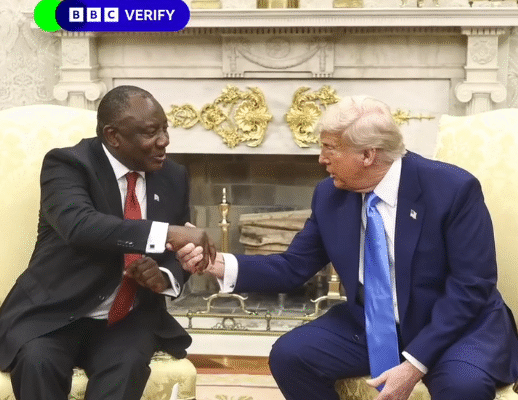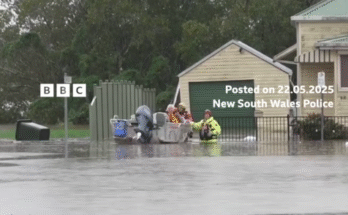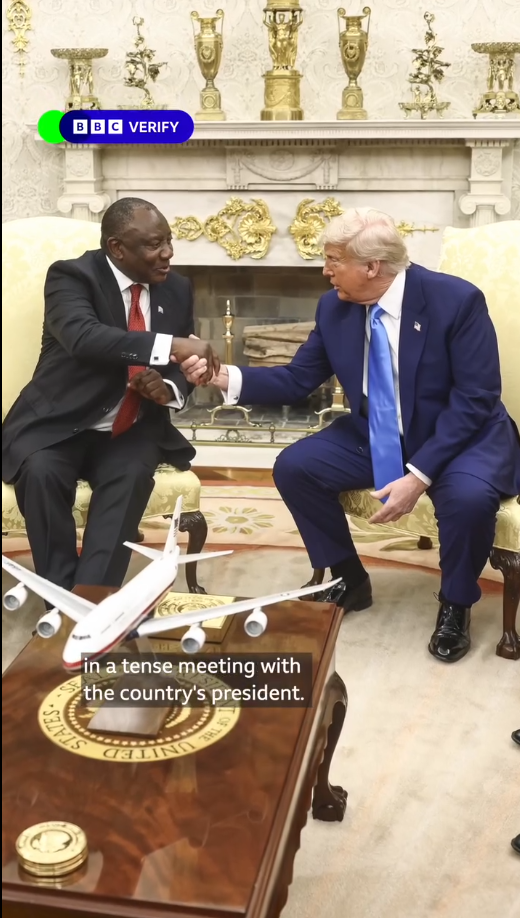
Donald Trump Confronts South Africa’s President Cyril Ramaphosa Over White Farmer Killings in Tense White House Exchange
In a contentious and high-stakes meeting at the White House on Wednesday, former U.S. President Donald Trump directly challenged South African President Cyril Ramaphosa over the highly controversial issue of farm attacks in South Africa—specifically the killings of white farmers. The closed-door discussion, described by officials as tense and emotionally charged, has reignited a long-standing international debate surrounding land ownership, crime, and race relations in South Africa.
The Exchange at the White House
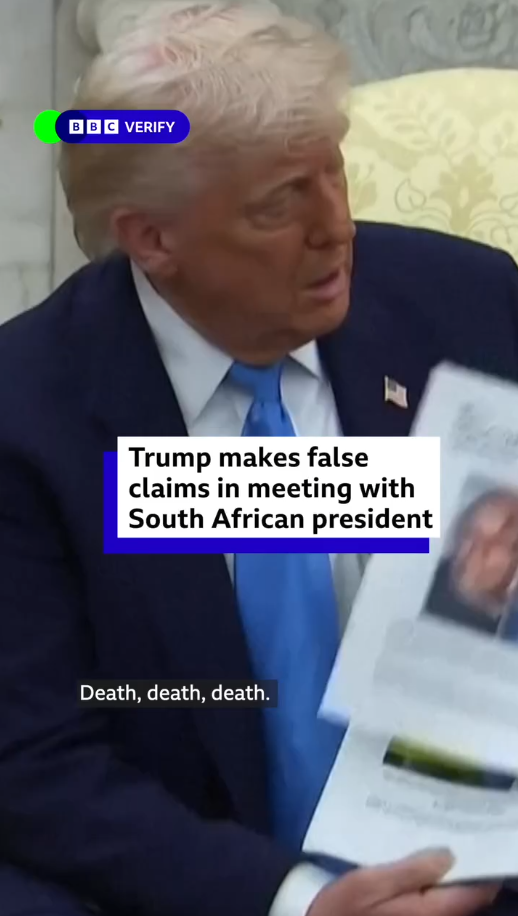
According to senior diplomatic sources familiar with the meeting, the confrontation occurred during a bilateral summit intended to strengthen economic ties and cooperation between the United States and South Africa. However, Trump reportedly pivoted sharply from prepared talking points, pressing Ramaphosa on what he called a “genocide against white farmers,” referencing contested reports and narratives that have circulated in right-wing and nationalist circles, particularly in the U.S. and Europe.
President Ramaphosa, visibly unsettled by the unexpected turn, responded firmly, saying that South Africa is “a democratic nation governed by law, not hysteria or misinformation,” and pushed back on what he called “grossly distorted representations” of violence in South Africa.
Trump is said to have cited statistics from U.S.-based conservative media and advocacy groups, alleging that the South African government was “turning a blind eye” to crimes against white farmers, whom he characterized as victims of politically motivated violence. Ramaphosa countered that crime in South Africa affects all communities, not just white landowners, and emphasized that the government is committed to protecting every citizen regardless of race.
Background of the Controversy
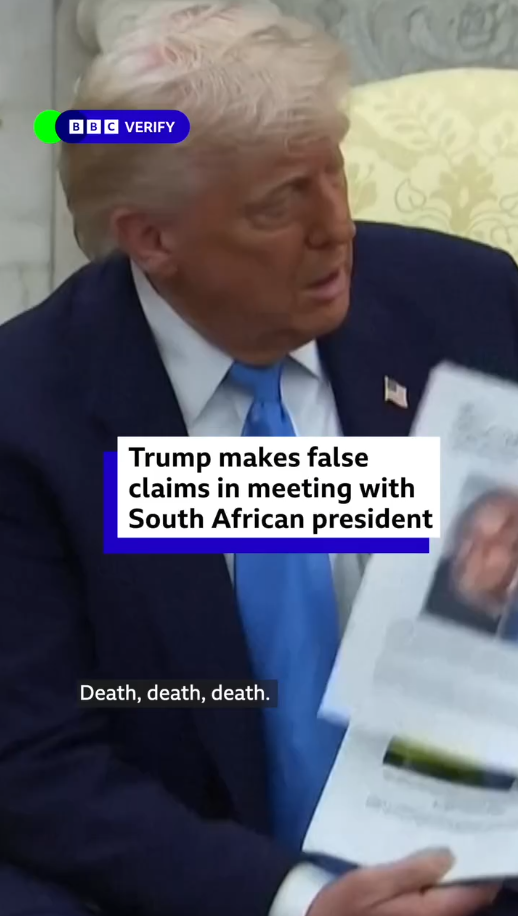
The issue of farm attacks in South Africa—particularly involving white farmers—has been the subject of fierce political and media debate for decades. While there are documented cases of violent crimes on farms, including murder, robbery, and assault, the claims that white South Africans are being systematically targeted for racial or political reasons remain heavily disputed.
Multiple independent studies, including those by the South African Police Service (SAPS) and the Institute for Security Studies (ISS), have concluded that farm attacks are largely criminal in nature, motivated by economic factors rather than race. However, right-wing commentators, particularly in the West, have pushed a narrative that white South Africans—especially Afrikaner farmers—are victims of a quiet “ethnic cleansing.”
Trump first drew international attention to the issue in 2018 when he tweeted that he had asked then-Secretary of State Mike Pompeo to investigate “land and farm seizures and expropriations and the large scale killing of farmers.” The South African government responded with outrage, accusing Trump of spreading misinformation and racial division.
Domestic and International Fallout
Wednesday’s confrontation is already generating significant political reverberations both in South Africa and internationally. In Washington, the exchange has deepened concerns among foreign policy experts about Trump’s approach to diplomacy and his reliance on unverified sources. Critics argue that his fixation on this issue feeds into alt-right conspiracy theories and risks damaging relations with African nations.
Democratic lawmakers were quick to condemn Trump’s actions. Senator Chris Murphy (D-CT), a member of the Senate Foreign Relations Committee, said: “This reckless and racially charged rhetoric not only undermines our standing abroad but also emboldens extremist narratives at home.”
In South Africa, President Ramaphosa is under pressure to defend the country’s image on the world stage while continuing to address legitimate issues of rural crime and land reform. In a statement released after the meeting, the South African presidency said: “President Ramaphosa clarified that while farm crimes are a concern, they are part of broader societal challenges facing all South Africans. He expressed disappointment that outdated and inaccurate claims continue to distract from the real work of building an inclusive and just society.”
The Role of Land Reform
Underlying much of this debate is South Africa’s deeply complex and emotional issue of land reform. For decades, activists have called for the redistribution of land to address historical injustices stemming from apartheid and colonial dispossession. White South Africans, who make up roughly 8% of the population, still own a disproportionate share of the country’s farmland.
Ramaphosa’s government has endorsed policies aimed at land redistribution, including the controversial proposal of expropriation without compensation. While the policy has yet to be implemented on a large scale, it has triggered alarm among property owners and investors, and has become a flashpoint for political rhetoric—both within South Africa and abroad.
Critics of the policy argue that it could destabilize the economy and scare off foreign investment. Supporters say it is a necessary step toward justice and equity in post-apartheid South Africa. Trump’s comments have added fuel to these already volatile discussions, with some interpreting his words as a defense of property rights, while others see it as an inappropriate interference in domestic South African affairs.
Reactions from the South African Public
In South Africa, reactions to the White House incident have been mixed, mirroring the nation’s own divisions on issues of race, crime, and land. Some white farming advocacy groups welcomed Trump’s focus on the issue, viewing it as validation of their long-held concerns.
However, a broader swath of civil society, including human rights organizations and legal scholars, have condemned what they see as the politicization and oversimplification of complex societal issues. “The problem with these claims is that they reduce a national tragedy—violent crime—to a racial issue,” said Nomsa Dlamini, a Johannesburg-based legal analyst. “We need unity and real solutions, not imported fear-mongering.”
Conclusion
The confrontation between Donald Trump and Cyril Ramaphosa at the White House represents more than just a diplomatic spat—it is a collision of narratives, ideologies, and historical wounds that span continents. While the issue of farm attacks is real and devastating to those affected, framing it through the lens of race or genocide risks distorting the truth and undermining efforts at national healing and reform.
As South Africa continues its journey toward equity and justice, and as the world watches closely, Wednesday’s exchange will likely be remembered as a moment that exposed the challenges of addressing sensitive issues in an age of misinformation and geopolitical tension. Whether this clash will lead to greater international understanding or further division remains to be seen.
